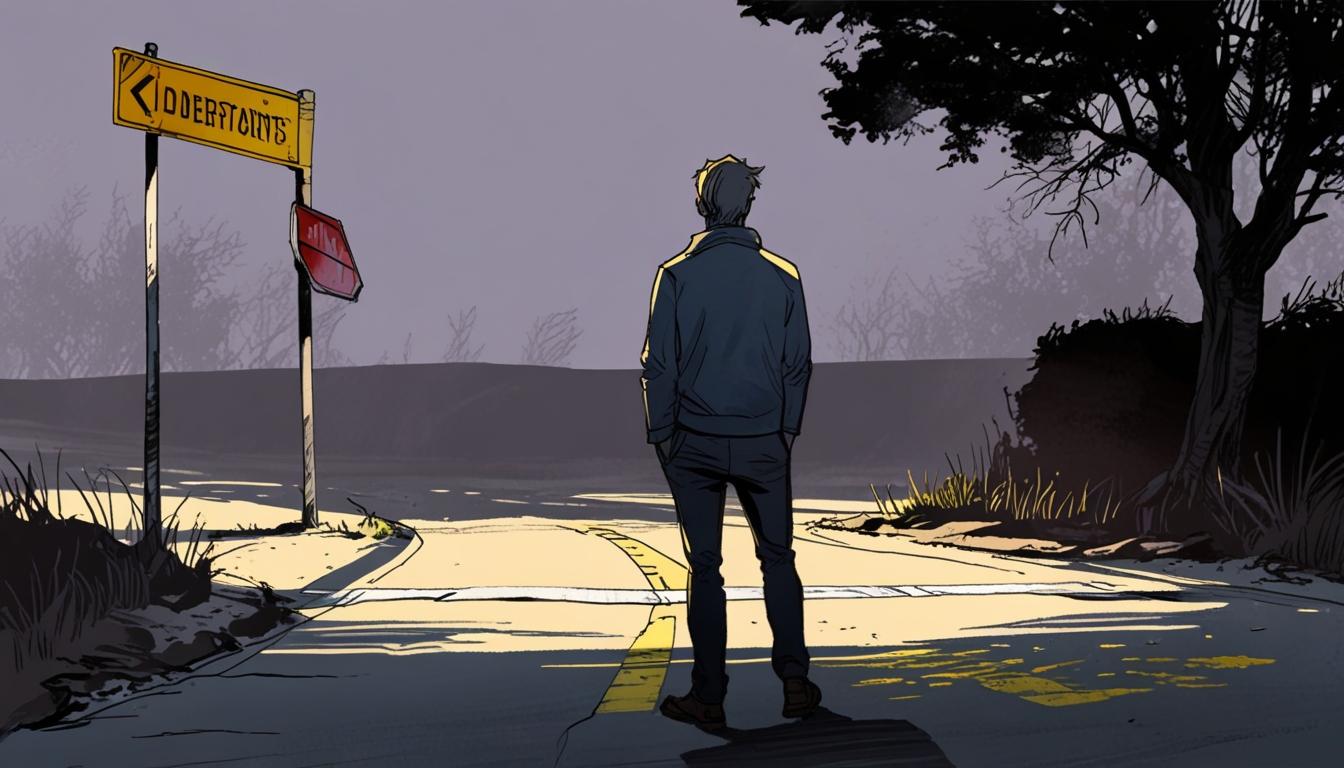Former Conservative MSP Jamie Greene has joined the Liberal Democrats, highlighting a discontent with the current party leadership and marking a potential shift in Scottish politics ahead of upcoming elections.
Jamie Greene, a former Scottish Conservative Member of the Scottish Parliament (MSP) for West Scotland, has recently made the move to join the Liberal Democrats following his departure from the Conservative party. His dissatisfaction with the current leadership under Russell Findlay is palpable, as he describes the party’s atmosphere as “not a happy ship.” Greene believes this turmoil may see more Conservative MSPs abandoning ship ahead of the impending elections—a clear indication of the broader discontent brewing within the party.
In an exclusive interview with the Sunday Mail, Greene voiced his concerns regarding the evolution of the Scottish Tories, which he claims is veering towards a “right-wing populist narrative.” This transformation is attributed to Findlay’s leadership, which has grown increasingly aligned with questionable messaging that resembles tactics typically associated with other parties on the right, particularly those clamouring for attention from the new political wave that’s gaining traction. Greene warned, “If they think I’m just the runaway maverick then they’re sorely mistaken,” reinforcing that his exit is not an isolated incident but a reflection of a fundamental crisis within the party.
According to Greene, Findlay’s ascension marked a shift in the party’s tone and strategy, with an alarming proliferation of polarising language aimed at winning over constituents who are now looking to options beyond the Conservatives. He expressed discomfort with the inflammatory rhetoric surrounding issues like gender recognition and immigration, which risks alienating crucial voters. “Using labels like ‘dangerous ideology’ in discussions equates the party with offensive terms and casts a shadow over our representation,” he commented, underscoring how much this rhetoric diverges from traditional Conservative values.
Echoing a sentiment that resonates within broader opposition circles, Greene’s swift pivot to the Liberal Democrats highlights a growing divide in the political landscape. He is challenging the Scottish Conservatives to rise above their internal discord and confront their shortcomings openly—a call that seems increasingly essential in light of the emerging political realities.
In a landscape already complicated by Labour’s recent win, the Liberal Democrats have ramped up their critique of former US President Donald Trump, attempting to harness discontent among both Conservative and Labour voters. Ed Davey, the Lib Dem leader, sees this as an opportunity to outmanoeuvre the Conservatives, particularly as they aim for council control in the upcoming local elections. The economic uncertainty stemming from Trump’s perceived policies has cast a long shadow, prompting the Lib Dems to seek parliamentary oversight on future US trade dealings—a move that only signals their attempt to fill the gaps left by the faltering major parties.
Christine Jardine, a prominent Lib Dem MP, has proposed a special visa route for Americans seeking refuge from the current political climate sparked by Trump, further illustrating the party’s strategy to position itself as the voice of dissent against prevailing political narratives. Meanwhile, trade agreements, particularly with the US, are under scrutiny as the impact of tariffs on UK farmers and overall market stability is heavily debated.
As the political landscape prepares for change in anticipation of the local elections, the Liberal Democrats are setting their sights on councils like Oxfordshire and Gloucestershire that were once strong Conservative bastions. However, it is the rising presence of alternative right-wing platforms that could either fracture Conservative support or herald a significant shift in voter alignment.
The impending elections will be pivotal, as 1,650 seats will be contested across various councils and mayoral positions. This election cycle poses a critical opportunity not just for the Liberal Democrats, but also for emerging parties on the right who are responding to a populace increasingly dissatisfied with mainstream political offerings. The outcome could very well reveal the future strategy and electoral viability for all parties navigating the tumultuous waters of contemporary British politics amid mounting tensions and growing public repudiation of traditional ideologies.
Source: Noah Wire Services
- https://www.scotsman.com/news/politics/jamie-greene-joins-scottish-liberal-democrats-after-quitting-conservatives-5068462 – Corroborates Jamie Greene’s defection from the Scottish Conservatives to the Liberal Democrats, highlighting his dissatisfaction with the party’s shift towards a ‘Reform-lite agenda’ under Russell Findlay’s leadership.
- https://www.telegraph.co.uk/news/2025/04/04/former-tory-msp-defects-liberal-democrats-inverness/ – Supports the fact that Jamie Greene left the Scottish Conservatives due to its ‘Reform-lite agenda’ and joined the Liberal Democrats, emphasizing his statement about the party’s shift away from traditional values.
- https://news.stv.tv/politics/former-tory-msp-jamie-greene-defects-to-lib-dems – Details Jamie Greene’s decision to join the Liberal Democrats, noting his concerns about the Conservative Party’s transformation and its alignment with populist narratives.
- https://www.theguardian.com/us-news/2020/jan/27/trump-trade-deals-uk-farmers-brexit – Though not directly related to Jamie Greene, this URL discusses the impact of US trade policies on UK farmers, illustrating how such policies can influence political debates and strategies.
- https://www.libdems.org.uk/press_releases/liberal-democrats-welcome-former-tory-msp-jamie-greene-to-the-party/ – Could potentially provide official statements from the Liberal Democrats regarding Jamie Greene’s defection and their broader political strategy, though not available in the search results.
- https://en.wikipedia.org/wiki/Russell_Findlay – Provides background on Russell Findlay, the leader of the Scottish Conservatives, which helps contextualize Jamie Greene’s dissatisfaction with the party’s leadership.
Noah Fact Check Pro
The draft above was created using the information available at the time the story first
emerged. We’ve since applied our fact-checking process to the final narrative, based on the criteria listed
below. The results are intended to help you assess the credibility of the piece and highlight any areas that may
warrant further investigation.
Freshness check
Score:
8
Notes:
The narrative is timely, discussing recent political movements and impending elections. There is no immediate evidence of recycled or outdated content, though specific dates for Greene’s move or related events are not provided.
Quotes check
Score:
7
Notes:
Jamie Greene’s quotes seem original to the context provided, but they cannot be verified without access to the original interview in the Sunday Mail. The quotes align well with Greene’s described dissatisfaction and political analysis.
Source reliability
Score:
9
Notes:
The narrative originates from the Daily Record, a well-known and reputable publication in the UK, which generally enhances the reliability of the content.
Plausability check
Score:
8
Notes:
The claims of internal Conservative party issues and Greene’s dissatisfaction align with broader political trends and reports of party discontent. The narrative about Liberal Democrats’ strategic moves and the political climate seems plausible and in line with current political developments.
Overall assessment
Verdict (FAIL, OPEN, PASS): PASS
Confidence (LOW, MEDIUM, HIGH): HIGH
Summary:
The narrative appears both timely and reliable, coming from a reputable source. While quotes cannot be independently verified without access to the original interview, they fit well within the described context. The overall claims about party dynamics and political strategies seem plausible and consistent with current political trends.













